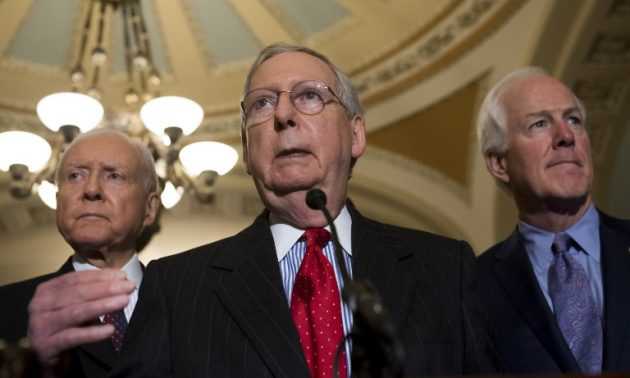The US Congress wants to stop Trump’s tariffs, but it won’t
21 July, 2018

America’s trade war with China made headlines again on Friday after President Donald Trump said he was “ready” to impose tariffs on a value of goods equal to that of total imports from the United States’ largest trading partner.
His comments suggested there was truth to his top economic adviser Larry Kudlow’s remarks a day earlier, which indicated Trump is “so dissatisfied” with China trade talks that he is “keeping the pressure on.” Whether the characteristically offhand threat from the president was a bluff or not, it has become clear beyond a reasonable doubt that talks between the world’s two largest economies have effectively broken down.
Negotiations between White House officials and their Chinese counterparts have been restarted after previous breaks, but an escalation in confrontational rhetoric from both sides has changed the dynamic dramatically for the worse. There is no obvious “off-ramp” on either side.
On the American side, the politics of Trump’s trade war have been injected into the debate as members of Congress position themselves for midterm elections in November.
That vote will decide whether the president’s party maintains a majority in the House of Representatives. But for Republicans in the Senate, whose control does not appear in danger, the issue of trade is about more than just the midterms. It is about the identity of the party itself.
Opposition to protectionist policies has been a key part of the Republican platform since at least the 1980s under the administration of Ronald Reagan. Challenges to liberalized trade, meanwhile, have traditionally come from labor unions aligned with the Democratic Party.
Trump and the voters across rust-belt states that defected from the Democrats to vote him into the White House have turned that upside down.
Republican senators are still near-unanimously opposed to the tariff policy, and they are vocal about it. A bloc of Democrats who have vehemently opposed Trump’s trade tactics might even give the Republicans the votes they need to pass veto-proof legislation. But that can only happen if the president’s party is willing to defy their new leader.
To underscore bipartisan opposition to Trump’s policy, the Senate voted 88-11 this month to pass a symbolic “motion to instruct,” recommending that the president relinquish some of his authority to impose tariffs without the consent of Congress.
So far, the Republican leadership, despite almost daily meetings on the issue, has been slow to push for binding legislation.
“Some of my colleagues have been pressing the need for legislation to restrict the trade authorities that Congress has delegated to the president, and I have been sympathetic to their efforts,” Republican Senator Orrin Hatch said on Tuesday.
“If the administration continues forward with its misguided and reckless reliance on tariffs, I will work to advance trade legislation to curtail presidential trade authority,” added Hatch, who is chairman of the Senate Finance Committee.
Others in the president’s party have been equally critical of trade policy coming from the White House.
“The dam is finally breaking. Thankfully,” Republican Senator Bob Corker tweeted on Tuesday. “As the president taxes Americans with tariffs, he pushes away our allies and further strengthens [Russian President Vladimir] Putin. It is time for Congress to step up and take back our authorities. We have legislation to do that. Let’s vote.”
Despite Corker’s optimism that momentum is building to push back on the president’s tactics, the Republican Party has a track record of following in lock step with a figure who enjoys unprecedented own-party support.
There is more reason to doubt that tariffs on Chinese imports will face a legislative obstacle. All of the legislation being proposed, including the symbolic vote last week, deals only with tariffs that have been imposed on key US allies, not the China tariffs.
Taxes placed on imported steel and aluminum, which hit the European Union, Canada and Mexico, have prompted the most outrage among US lawmakers. Potential auto tariffs would also ensnare exports from those same countries. Legislation proposed thus far questions the president’s authority to impose these tariffs on the basis of national security.
Orders to impose tariffs on China cite an entirely different law, and Congress has signaled little interest in challenging them.
“We’ve got the whole world up in arms against us when we need the whole world working with us to push back on China. Where is the success of the negotiations?” said Republican Senator Ron Johnson, who has joined Corker in efforts to take back some trade authority.
Washington is unhappy with Trump on tariffs, and there is an outside chance they will limit Trump’s power to impose them on allies. There is little indication they would do the same to diffuse the trade war with China.
